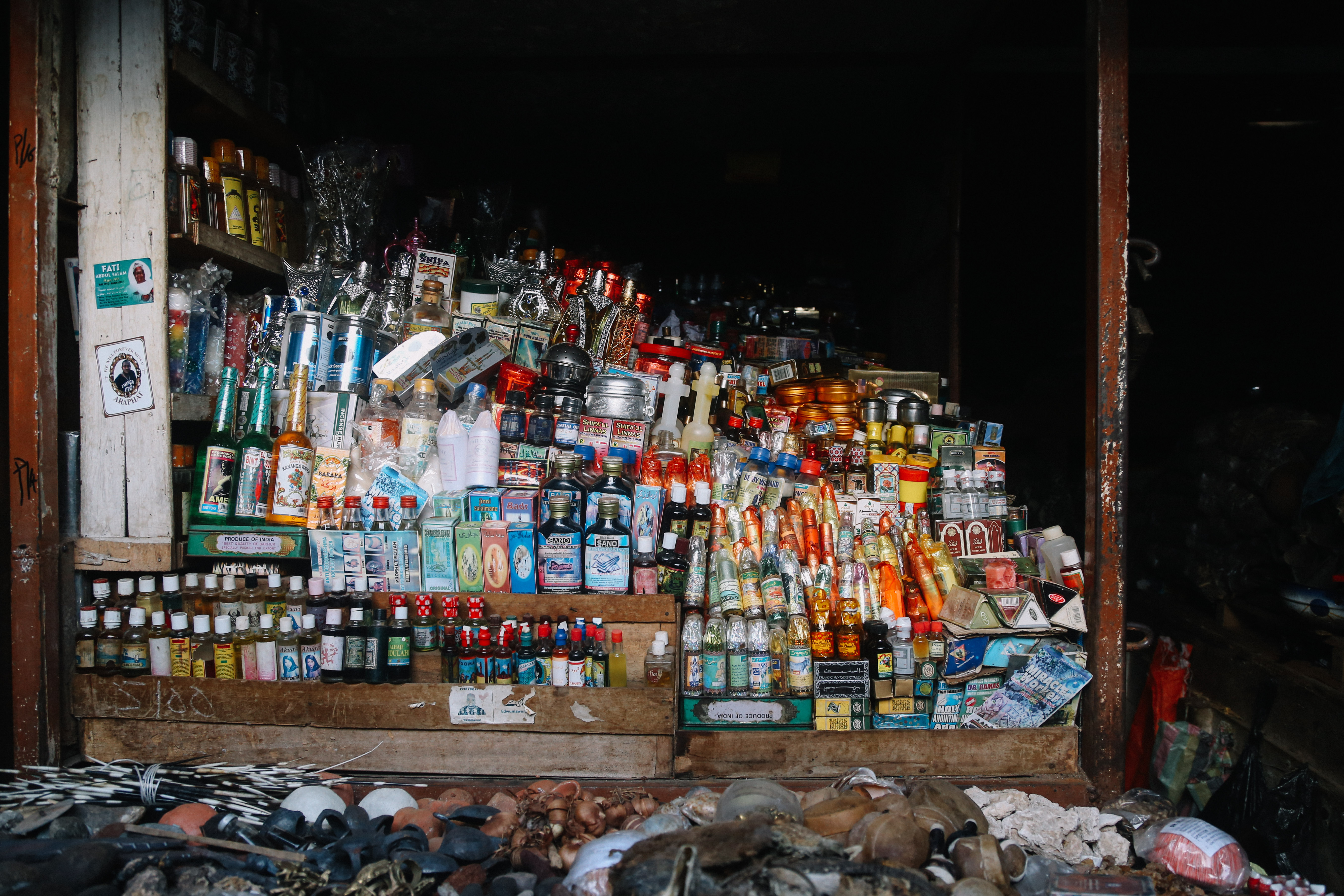
In Accra’s Makola Market, Thinking Critically About the Ethics of Photography
By Clara Mokri
[divider]
[dropcap]I[/dropcap]n the humid equatorial heat, we were already drenched in sweat by 10am. Our cab driver dropped us off in the middle of a congested and narrow road; we were surrounded by local men and women selling goods from fried tilapia, to roselle leaves, to kitchenware. Vendors’ stands encroached onto the sidewalks, and pedestrians were spilling onto the road, creating a huge traffic jam. As we navigated through the maze of Accra’s Makola Marketplace, it very quickly became evident that we were one of the few, if not the only, group of foreigners walking around.
As a photographer, my first instinct was to pull out my camera and attempt to document the essence of what I was experiencing. However, traveling with a camera always comes with a slew of moral and ethical quandaries. I did not want to upset anyone by taking their pictures without permission, and I wanted to be sure that I was respectful of a space that, while seemingly foreign to me, was integral to Ghanaian daily life. A good rule of thumb when photographing people abroad is to always ask permission. I decided to simply pull out the camera and hold it in my hand, just in case such opportunity were to arise.
Less than 30 seconds after pulling out my camera, various middle-aged and elderly women sternly scolded me for just having a camera in my hands. At first, I thought that this experience was a unique, isolated incident. However, as we continued walking through the market, a couple of my friends tried snapping quick pictures with their less conspicuous cameras and phones, and they too were reprimanded.
While at first I was frustrated, as my intention was never to be disrespectful, after leaving the market and spending more time in Ghana I completely understand where these women who reprimanded me were coming from. Ghanaian women possess a lot of power in their culture. From the queen mothers of the Ashanti people to these women in the marketplace, they all convey a commanding presence that demands respect from everyone. They take great pride in their culture, as well as great offense when they think that they have been disrespected. As I discovered, there’s a difference between interacting with locals, and exploiting them for personal gain. In the Makola Market, this voyeurism would be conveyed by taking—literally stealing— pictures of someone and their produce without permission, rather than making an effort to interact with individual vendors and establish a relationship with them.
All of this aside, a photograph is more fulfilling if there’s a story to go behind it. A portrait in particular automatically becomes more powerful if the photographer is able to establish a connection with their subject. That in particular is what I always strive for.

[hr]
Clara Mokri ’18 is a Political Science major in Timothy Dwight College. Contact her at clara.mokri@yale.edu.